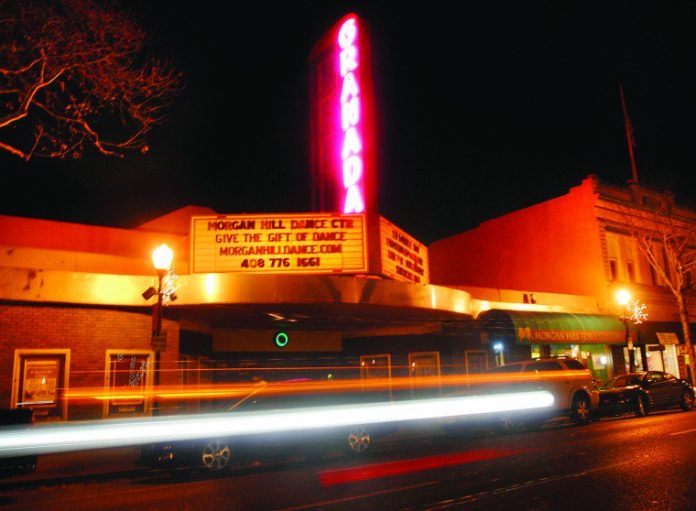
As the City, Santa Clara County and State of California put the final touches on a settlement agreement that will support plans for the revitalization of downtown, the future of the fledgling Morgan Hill Economic Development Corporation remains less certain.
The EDC was created in 2011 to manage and eventually revitalize – by working with private developers – about $14 million worth of downtown properties, including the Granada Theater, Downtown Mall, Royal Clothier building and former Simple Beverages site. But the coming settlement nixes that plan by transferring the properties back to the City in accordance with the state law that closed the RDA in February 2012.
That’s going to significantly limit the EDC’s role in the development of downtown, relative to its original intent, but board chair and City Councilman Larry Carr said it’s unlikely the EDC will simply shut itself down.
“There are very good and committed people on that board, and we ought to continue to use that experience and expertise,” Carr said.
At the very least, the EDC could continue as an advisory board, to advise the City, residents and the downtown development community on the best way to proceed with enacting the Downtown Specific Plan, which the City Council created in 2008.
“Anything developed (downtown) has to be built in accordance with the Downtown Specific Plan,” Carr added.
The EDC board includes other members with current and past business experience, in addition to knowledge of the role of the public sector in economic development. Also on the board are Brad Krouskup, CEO and President of Toeniskoetter Development; Doug Moffat, senior vice president of Pinnacle Bank; Morgan Hill Councilwoman Marilyn Librers, who is the executive direct of the nonprofit Pauchon Foundation; former Councilman and current business owner Greg Sellers; Howard Allred; and downtown resident Laura Gonzalez-Escoto.
Assistant City Manager Leslie Little added, “It would be a good thing for the community to try to continue to use them as a sounding board” through the downtown revitalization process, regardless of who holds the properties and the cash to develop them.
The EDC was created by the Morgan Hill RDA, at a time when City Council members became worried about potentially far-reaching impacts from the governor’s plans to shut down the RDA.
Months before its closure in February 2012, the RDA transferred the downtown properties – purchased by the RDA in 2008 – and about $4 million in former RDA cash to the EDC, a nonprofit corporation.
The EDC’s and City’s plan was to let the EDC manage the properties and their future development in accordance with the City’s 2008 Downtown Specific Plan, which calls for more parking and a mixture of retail, dining, office and residential development throughout downtown Morgan Hill.
But now with the coming agreement – which has already been approved by representatives of the City and County on the Redevelopment wind-down board – the EDC has to transfer the properties and cash (acquired from 2008 bond proceeds) back to the City.
The City and County will work together over the next six months to develop a “long range property management plan” for the properties, and then set out to use most of the remainder of the 2008 bond proceeds – about $19 million – to revitalize the downtown area.
One potential scenario for the EDC’s future is to become more like the Gilroy Economic Development Corporation, which was formed in 1996 to perform “more traditional economic development activities,” such as business attraction, retention and formation, and working with entrepreneurs, the City of Gilroy and any other parties that have a stake in any upcoming programs that might affect economic development, according to Gilroy EDC President and CEO Tammy Brownlow.
“Our core activities are business attraction, marketing Gilroy for potential new business, going to trade shows, responding to requests for information on new projects,” Brownlow said. “On the retention side, we call (Gilroy’s) major employers, and do a check-in on a regular basis.”
The Gilroy EDC has an annual budget of about $250,000, funded by the City of Gilroy, Gilroy Chamber of Commerce and other private partners, Brownlow said. Cooperation with other agencies including the City and Chamber is key to the EDC’s role in promoting economic development in Gilroy, she added.







